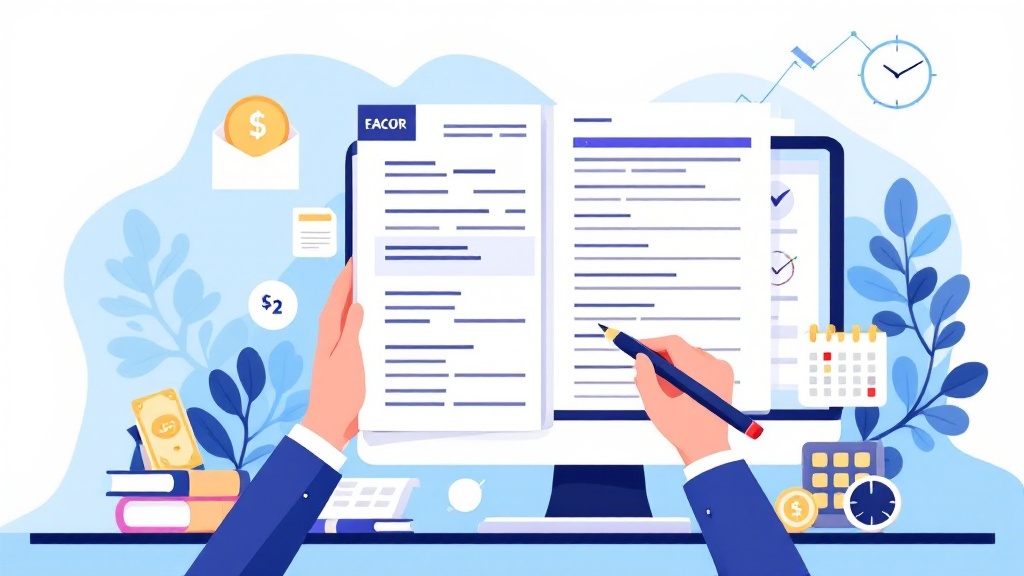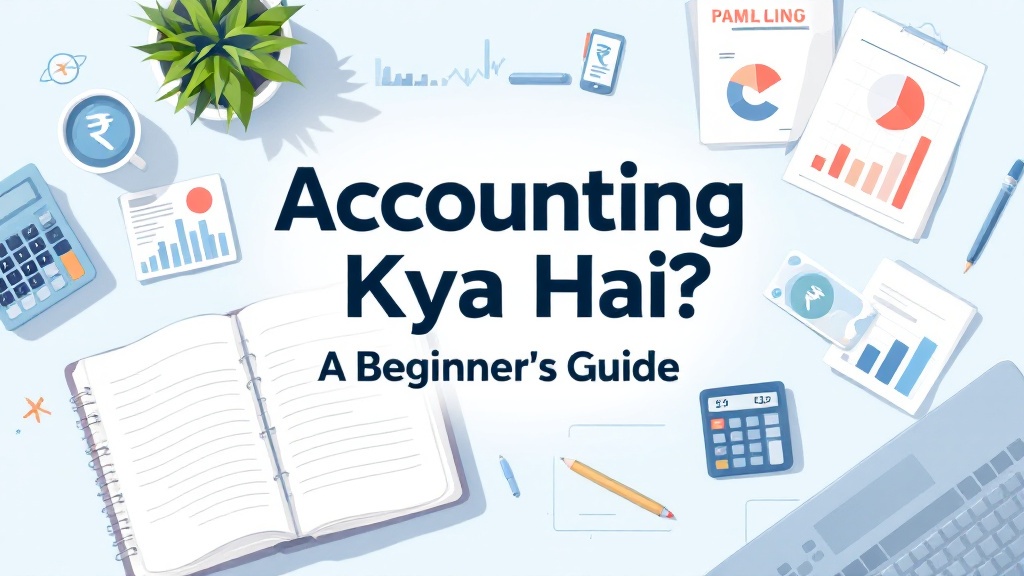CA Ki Padhai: A Complete Guide for Aspiring Chartered Accountants
Table of Contents
Most Read
Introduction
[fusion_dropcap class="fusion-content-tb-dropcap"]T[/fusion_dropcap]he journey to becoming a Chartered Accountant (CA) is both exciting and challenging, filled with numerous learning opportunities and career prospects. If you’ve ever wondered, “CA ki padhai kaise hoti hai?” you’re not alone. Aspiring Chartered Accountants often find themselves in a maze of questions about the course structure, exam pattern, eligibility, and career opportunities.
In this article, we’ll take you through everything you need to know about CA ki padhai—starting from the basics, all the way to tips for success. Whether you’re a high school graduate looking to pursue this prestigious profession or someone considering a career change, this guide will help you understand the road ahead.
What is CA (Chartered Accountancy)?
Chartered Accountancy is a highly respected profession in the field of finance and accounting. Chartered Accountants are experts in financial management, auditing, taxation, and business laws. They play a crucial role in advising businesses, individuals, and organizations on financial matters, ensuring legal compliance, and contributing to economic growth.
In India, the CA qualification is awarded by the Institute of Chartered Accountants of India (ICAI), which is the governing body for the profession.
The Path to Becoming a CA
The path to becoming a Chartered Accountant involves several stages, including education, exams, and practical training. Here’s an overview of the journey:
- Foundation Course (Common Proficiency Test – CPT)
- Intermediate Course (IPCC)
- Final Course (CA Final)
- Practical Training (Articleship)
Let’s dive deeper into each stage of CA ki padhai.
1. Foundation Course (CPT)
The first step in the CA journey is the Foundation Course, which can be pursued after completing the 10+2 level of education. The Foundation Course is designed to assess the basic knowledge required for a career in Chartered Accountancy.
Eligibility:
- The student must have completed 10+2 (any stream: Science, Commerce, or Arts) from a recognized board.
- There is no age limit for enrollment in the CA Foundation course.
Subjects Covered:
- Principles and Practices of Accounting
- Business Laws, Ethics, and Communication
- Business Mathematics, Logical Reasoning, and Statistics
- Business Economics and Business and Commercial Knowledge
Exam Pattern:
The CA Foundation exam is held twice a year, typically in May and November. The exam consists of four papers, and students must clear all four to progress to the next level.
2. Intermediate Course (IPCC)
Once you clear the Foundation Course, you can move on to the Intermediate Course, also known as the Integrated Professional Competence Course (IPCC). This stage involves a deeper understanding of accounting principles and concepts.
Eligibility:
- Students who have cleared the CA Foundation course can register for the Intermediate course.
- Alternatively, graduates with specific percentage criteria can directly register for the Intermediate course (without Foundation).
Subjects Covered:
The Intermediate Course is divided into two groups, with each group having four papers:
Group 1:
- Accounting
- Corporate and Other Laws
- Cost and Management Accounting
- Taxation
Group 2:
- Advanced Accounting
- Auditing and Assurance
- Enterprise Information Systems and Strategic Management
- Financial Management and Economics for Finance
Exam Pattern:
The CA Intermediate exam is also held twice a year. Students need to clear both groups or one group at a time to proceed to the final course.
3. Final Course (CA Final)
The last stage of CA ki padhai is the CA Final course. This is the most challenging and comprehensive part of the journey. Here, you will learn in-depth about advanced topics in accounting, taxation, auditing, and financial management.
Eligibility:
- To be eligible for the CA Final exam, students must have completed the CA Intermediate exam and have undergone practical training (articleship) for a specified period.
Subjects Covered:
The CA Final course is also divided into two groups:
Group 1:
- Financial Reporting
- Strategic Financial Management
- Advanced Management Accounting
- Taxation
Group 2:
- Auditing and Assurance
- Information Systems Control and Audit
- Financial Services and Capital Markets
- International Taxation
Exam Pattern:
The CA Final exams are conducted twice a year, and students need to clear both groups or one group at a time. The exams are known for their rigor and the level of expertise required.
4. Practical Training (Articleship)
One of the most unique aspects of CA ki padhai is the mandatory practical training, or articleship, which is an essential component of the learning process. After completing the Intermediate exams, students must undergo practical training under a qualified Chartered Accountant for three years.
During articleship, students get hands-on experience in auditing, taxation, accounting, and financial management. This practical training allows students to apply their theoretical knowledge in real-world scenarios and gain valuable insights into the profession.
CA Exam Pattern and Syllabus Overview
To give you a clearer picture of the CA exam structure, here is a summary of the exam pattern for each level:
| Level | Exams | No. of Papers | Duration |
|---|---|---|---|
| Foundation | Principles of Accounting, Business Laws, Economics | 4 | 3 hours each |
| Intermediate | Accounting, Taxation, Laws, Auditing, etc. | 8 | 3 hours each |
| Final | Advanced Accounting, Taxation, Auditing, etc. | 8 | 3 hours each |
Important Note: The CA exams are typically held in May and November, with specific dates announced by ICAI.
Time Management and Study Tips for CA Ki Padhai
Chartered Accountancy is a challenging course that requires a lot of dedication and hard work. Here are some time management and study tips to help you succeed in CA ki padhai:
- Create a Realistic Study Plan: Break down the syllabus into manageable portions and set achievable study goals for each week. Be consistent and follow the plan.
- Practice Regularly: CA exams require a high level of practice, especially in accounting and taxation. Solve mock papers and previous years’ question papers to understand the exam pattern and improve your speed.
- Stay Updated: Taxation laws and financial regulations change frequently. Keep up with the latest updates and revisions in the field of accounting and taxation.
- Join Coaching Classes (Optional): Many students opt for coaching classes to get expert guidance. If you find certain topics challenging, a good tutor can help simplify concepts.
- Maintain a Healthy Lifestyle: CA ki padhai can be intense, but it’s essential to take breaks and focus on your health. Regular exercise, proper sleep, and a balanced diet will keep your mind sharp.
Career Opportunities After Becoming a CA
Once you become a Chartered Accountant, the career possibilities are vast and lucrative. Here are some of the top career options for CAs:
- Auditing: CAs are in high demand for auditing services in various sectors, including government, private companies, and non-profit organizations.
- Taxation: Many CAs specialize in taxation, helping individuals and businesses with tax planning, filing returns, and compliance.
- Corporate Finance: CAs can work as financial analysts, investment bankers, or in corporate treasury functions, advising businesses on financial strategies.
- Consultancy: With the knowledge gained during the CA course, many CAs go on to offer advisory services in areas like mergers and acquisitions, risk management, and internal control systems.
- Entrepreneurship: Some CAs choose to open their own firms or accounting businesses, providing a range of services to clients.
Conclusion
Becoming a Chartered Accountant is a significant achievement and a rewarding career choice. However, it requires a lot of hard work, discipline, and focus. By understanding the structure of CA ki padhai, staying motivated, and managing your time effectively, you can excel in this prestigious profession. Whether you’re just starting or preparing for your exams, remember that every step you take brings you closer to a successful and fulfilling career in accounting.
So, if you’re ready to embark on the journey of CA ki padhai, start planning, stay dedicated, and keep pushing forward. The rewards are well worth the effort!
Visit Our Website : Accounting24.in









